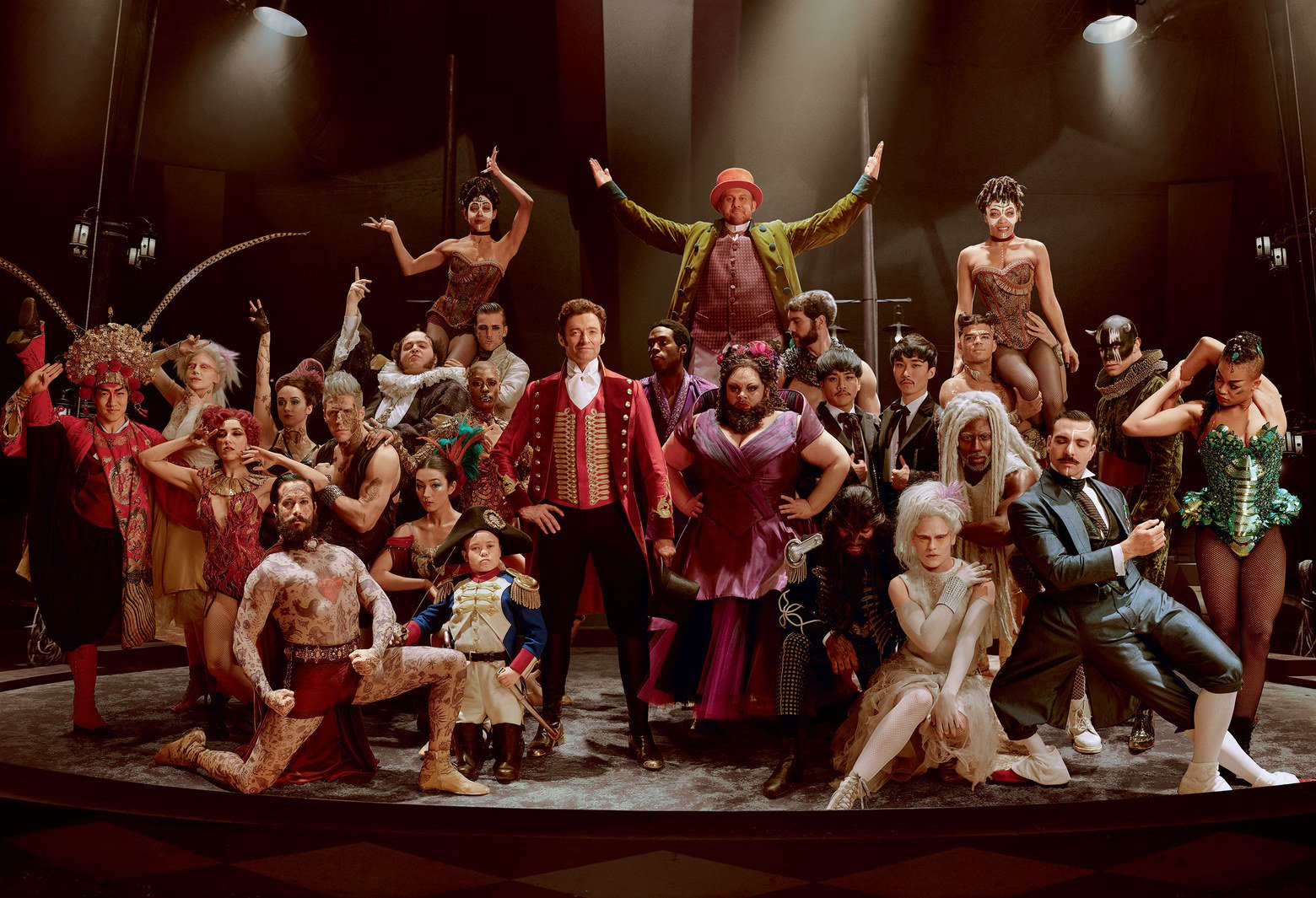As spectacle, The Greatest Showman is excellent, despite being a picturesque allegory (so to speak) of Hollywood’s most cherished dogma—the fantasy that the human will is sovereign. The sweep and color, the interplay of symmetry and asymmetry, the music and song, the symphony of movement and sentiment—well, it’s enough to take one’s breath away, and is all one would hope to experience in a work bearing this title, a superlative experience.
Visually, musically, and ideologically, the production pays homage to Mary Poppins, Chaz Bono, Peter Pan, Lady Gaga, Les Mis, and Caitlyn Jenner. Although, I imagine that had the bearded lady (ahem, Lettie Lutz) and the mulatto acrobat (Anne Wheeler) been replaced with, say, a shy pedophile and a staunch evangelical, their key songs (“This Is Me” and “Rewrite the Stars”) wouldn’t have generated such plaudits, wouldn’t have appeared so beautiful and true. To many (most?), they would have seemed fake—a key word from the movie—maybe even downright deplorable. I mean, what would viewers do if the pedophile, reviled by the “common” people (i.e., by the “privileged” majority, the “normal” ones), sang in lilting melody, “It’s up to you, and it’s up to me / No one can say what we get to be”? Or if the evangelical, shamed and laughed at by the majority, courageously belted out, “I know that there’s a place for us / For we are glorious”? Yeah, I don’t think so.
And why is this? Because the fantasy that the human will is sovereign is just that—fantasy. It isn’t real; it isn’t true (just as the progressives’ tolerance isn’t tolerant). Not even the greatest showman can conjure it into existence.
Oh, I suppose one can ignore the obvious, can say (reductively) that Showman is merely a story about the power of love over hate (tolerance over intolerance), about believing in one’s self against seemingly insurmountable odds and bias, about accepting one’s imperfections and not letting social stigmata hinder one from achieving happiness. All this is surely there in the story. But this is, finally, a myopic view that dishonors (because it ignores) an obvious message in the story—obvious, anyway, to those who are aware of the progressives’ discourse about gender and sexuality, which leaks liberally from every mainstream outlet.
Nevertheless, that ignorance is nearly bliss in this case, for the movie is an aesthetic delight, and because it is, I want to praise its substance, its ideas; I truly do. But I can’t, not with both eyes open, anyway. Perhaps what Barnum said of his spectacular show can apply to the movie itself, “‘People pay to be hoodwinked.’” Never has being hoodwinked felt and looked so good.
